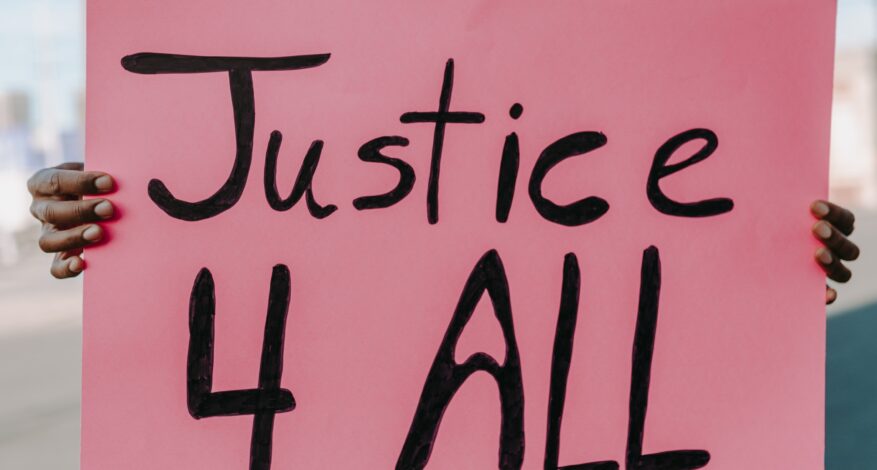WHY ARE FARMERS PROTESTING IN INDIA?
In September 2020, the Indian Parliament approved three farm acts known as Farm Bills. This led to dissension among farmers especially in the northern regions, followed by protests all across the country.
Indian farmers’ conditions
 To understand the current situation in India, one should consider the importance of agriculture in the country’s economy. According to this report, agriculture plays a crucial role in India’s economy as it accounts for 17 percent of the total GDP roughly, employing more than 60 percent of the population. However, farmer’s conditions are all but favourable. As stated in the Situation Assessment Survey of Agricultural Households 2013, the average annual income of an Indian farming household is Rs 77,124 which is just enough to support the average monthly outlay of about Rs 6,223. Moreover, considering that two-thirds of the country’s land holdings are smaller than one hectare, the 2014 Agricultural Census observed that farmers have limited land holdings, making it difficult for them to fulfill their needs. This unbearable situation had a dramatic outcome for many: in 2019 alone, 10,281 farmers committed suicide. There are many different reasons for these tragic events: farmers cannot pay their loans back to private landlords and banks, neither can they make investments to increase their yields, not to mention they have to deal with floods, droughts, because of inadequate artificial irrigation facilities, and public health issues.
To understand the current situation in India, one should consider the importance of agriculture in the country’s economy. According to this report, agriculture plays a crucial role in India’s economy as it accounts for 17 percent of the total GDP roughly, employing more than 60 percent of the population. However, farmer’s conditions are all but favourable. As stated in the Situation Assessment Survey of Agricultural Households 2013, the average annual income of an Indian farming household is Rs 77,124 which is just enough to support the average monthly outlay of about Rs 6,223. Moreover, considering that two-thirds of the country’s land holdings are smaller than one hectare, the 2014 Agricultural Census observed that farmers have limited land holdings, making it difficult for them to fulfill their needs. This unbearable situation had a dramatic outcome for many: in 2019 alone, 10,281 farmers committed suicide. There are many different reasons for these tragic events: farmers cannot pay their loans back to private landlords and banks, neither can they make investments to increase their yields, not to mention they have to deal with floods, droughts, because of inadequate artificial irrigation facilities, and public health issues.
India’s agricultural system and the new laws
 The Indian agricultural system is based on farmers bringing their crops to wholesale markets called mandis where their products are sold to traders in an open auction. The system is regulated by the Agricultural Produce Marketing Committee, to prevent retailers to exploit the farmers, while the Government sets MSPs (minimum support prices). The new laws establish a contract farming system by allowing farmers to sell their products to buyers outside the current and controlled mandi system, giving way to private investors. Although the Government claims that the acts allow producers to have more freedom, farmers are afraid that the new system will overshadow the mandi one and compromise the MSPs, without which corporations would not be required to pay the guaranteed minimum amount. Farmers claim that they were not consulted during the process and they also question the legality of the acts as the bills were rushed through Parliament without much debate and passed thanks to a dubious voice vote.
The Indian agricultural system is based on farmers bringing their crops to wholesale markets called mandis where their products are sold to traders in an open auction. The system is regulated by the Agricultural Produce Marketing Committee, to prevent retailers to exploit the farmers, while the Government sets MSPs (minimum support prices). The new laws establish a contract farming system by allowing farmers to sell their products to buyers outside the current and controlled mandi system, giving way to private investors. Although the Government claims that the acts allow producers to have more freedom, farmers are afraid that the new system will overshadow the mandi one and compromise the MSPs, without which corporations would not be required to pay the guaranteed minimum amount. Farmers claim that they were not consulted during the process and they also question the legality of the acts as the bills were rushed through Parliament without much debate and passed thanks to a dubious voice vote.
Protests and blocked Internet access
 Soon after the Bharatiya Janata Party rushed the bills through Parliament last September, farmers’ unions held local protests. Two months later, the farmers from the northern states of Punjab and Haryana marched to New Delhi with the intention of pressing the government to revoke the bills. As a consequence, around 250 million people across the country joined the protest to show their support. Even though water cannons and tear gas were used by the armed forces to prevent the farmers from approaching the capital, they managed to set up protest camps in the suburbs of the city. Initially, the protests were peaceful until, on India’s Republic Day, they had a violent turn during a parade. Unfortunately, according to the farmers’ United Front of Samyukt Kisan Morcha, 248 farmers died over just 87 days during the protests. At the beginning of last February, after the violent clashes between the police and the protestors, the Government blocked Internet access in many districts of the country to prevent a national emergency and maintain public safety. However, the news has spread all around the world, also thanks to celebrities’ posts on social media, Barbadian pop singer Rihanna among them. On February 2nd, she shared an article about the farmers’ protests in India on her Twitter account, asking “why aren’t we talking about this?!”. The Government’s response was to accuse these celebrities’ tweets of being a threat to the country’s unity. The Farm Bills were suspended temporarily by India’s Supreme Court hoping for negotiations with the farmers, but the protests continue.
Soon after the Bharatiya Janata Party rushed the bills through Parliament last September, farmers’ unions held local protests. Two months later, the farmers from the northern states of Punjab and Haryana marched to New Delhi with the intention of pressing the government to revoke the bills. As a consequence, around 250 million people across the country joined the protest to show their support. Even though water cannons and tear gas were used by the armed forces to prevent the farmers from approaching the capital, they managed to set up protest camps in the suburbs of the city. Initially, the protests were peaceful until, on India’s Republic Day, they had a violent turn during a parade. Unfortunately, according to the farmers’ United Front of Samyukt Kisan Morcha, 248 farmers died over just 87 days during the protests. At the beginning of last February, after the violent clashes between the police and the protestors, the Government blocked Internet access in many districts of the country to prevent a national emergency and maintain public safety. However, the news has spread all around the world, also thanks to celebrities’ posts on social media, Barbadian pop singer Rihanna among them. On February 2nd, she shared an article about the farmers’ protests in India on her Twitter account, asking “why aren’t we talking about this?!”. The Government’s response was to accuse these celebrities’ tweets of being a threat to the country’s unity. The Farm Bills were suspended temporarily by India’s Supreme Court hoping for negotiations with the farmers, but the protests continue.
This situation cannot go on any longer. Proceeding unilaterally would cause further protests and put peoples’ lives at risk. The Government should collaborate with the farmers, reforming the agricultural sector considering the workers’ needs and rights.

